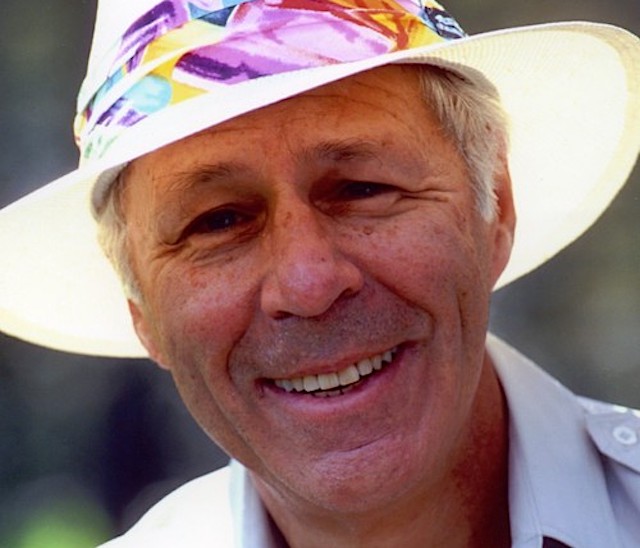Scientist, Hugo Award winner, and prolific science fiction author and editor Ben Bova passed away on Sunday, November 29, 2020 at the age of 88, Tor.com is able to confirm. The author of more than one hundred books, Bova also edited some of the genre’s best-known publications and served as the president of the Science Fiction and Fantasy Writers of America.
Word of Bova’s passing first came from Kathryn Brusco, who revealed that Bova had passed due to complications from COVID-19 and a stroke.
My Uncle Ben…by marriage…science fiction icon, author, adventure lover, story teller, futurist, and my son's namesake, Ben Bova, has passed away this morning from COVID-19 related pneumonia and a stroke. Needless to say, he will be missed terribly by us and the the world. pic.twitter.com/lbuvRLm5V8
— Kathryn Brusco (@KathrynBruscoBk) November 29, 2020
Born in 1932, Bova brought experience to the science fiction genre that few authors could match: he worked as a technical editor for the U.S.’s Project Vanguard, the first effort on the part of the country to launch a satellite into space in 1958. Bova went on to work as a science writer for Avco Everett Research Laboratory, which built the heat shields for the Apollo 11 module, putting man on the Moon and ensuring that science fiction would continue to increasingly define the future.
It was around that time that Bova began writing and publishing science fiction. He published his first novel, The Star Conquerors, in 1959, and followed up with dozens of others in the following years, as well as numerous short stories that appeared in publications such as Amazing Stories, Analog Science Fact and Fiction, Galaxy Magazine, The Magazine of Fantasy and Science Fiction, and others.
In 1971, he took over the helm of Analog following the death of its long-running editor, John W. Campbell Jr. — a huge task, given Campbell’s influence on the genre to that point. According to the Encyclopedia of Science Fiction, Bova doubled down on the publication’s tendencies towards technological realism and Hard SF, “but considerably broadened its horizons.” While there, he published notable stories such as Joe Haldeman’s Hero (which became The Forever War), and earned the Hugo Award for Best Editor for numerous consecutive years before stepping down in 1977. From there, he became the first editor of Omni Magazine until 1982, and consulted on television shows such as The Starlost and Land of the Lost.
Bova’s best-known works involved plausible sciences about humanity’s expansion into the universe, looking at how we might adapt to live in space with novels such as 1992’s Mars, about the first human expedition to the red planet. He followed that novel up with additional installments, forming the Grand Tour series, which explored all of the solar system’s major bodies. The latest installment, Uranus, was published in July, and was scheduled to be the first of a trilogy. The second installment, Neptune, is scheduled for release next year. The ESF notes that “the straightforwardness of Bova’s agenda for humanity may mark him as a figure from an earlier era; but the arguments he laces into sometimes overloaded storylines are arguments it is important, perhaps absolutely vital, to make.”










